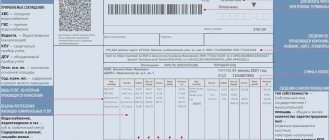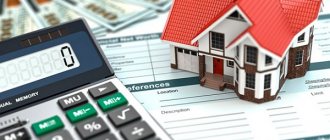How is rent calculated if no one is registered in the apartment?
Gas is not consumed so actively and the tariffs for it, if we talk about consumption exclusively through a gas stove, are acceptable. But even in this case, it is beneficial to install a meter. If no one is registered or living in the premises, and accordingly does not use it, then there will be no payment. When using gas, it will be taken into account after the fact, and this, as practice shows, is much more economical than paying at average tariffs.
For those owners who have gas heating and water heating systems, they cannot do without a metering device at all.
A gas meter will allow you to seriously save on payments for this expense item. And consumers themselves are much more respectful of resources if they have metering devices.
Electricity meters are available in all residential premises, regardless of the form of ownership. But significant changes are also taking place in this area, which are pushing consumers to replace old appliances with new models. Today, manufacturers offer improved electronic models with a lower level of error. New electricity meters are being introduced that will be able to take into account electricity consumption at different times of the day and apply different tariffs to them, which will also help save money.
Electricity meters imply payment for this resource upon delivery, but sometimes apartment owners pay for electricity consumed in common areas - in the entrance, elevator, courtyard.
Water is the most consumed resource, it is calculated per cubic meter. Cold water is relatively inexpensive, but when consuming hot water, you should also take into account the costs of heating it, which significantly increase the final payment amount. When installing water supply meters, two meters are installed at once - one for cold and the other for hot.
Having splurged on metering devices once, the savings can be calculated monthly. This is convenient both for those premises where no one lives, and for those where there are registered people. Payment is calculated solely upon actual payment. If the meter readings are zero, you will not have to pay, even if there are five people registered in the apartment.
Gas is not consumed so actively and the tariffs for it, if we talk about consumption exclusively through a gas stove, are acceptable. But even in this case, it is beneficial to install a meter. If no one is registered or living in the premises, and accordingly does not use it, then there will be no payment. When using gas, it will be taken into account after the fact, and this, as practice shows, is much more economical than paying at average tariffs.
For those owners who have gas heating and water heating systems, they cannot do without a metering device at all.
A gas meter will allow you to seriously save on payments for this expense item. And consumers themselves are much more respectful of resources if they have metering devices.
Electricity meters are available in all residential premises, regardless of the form of ownership. But significant changes are also taking place in this area, which are pushing consumers to replace old appliances with new models. Today, manufacturers offer improved electronic models with a lower level of error. New electricity meters are being introduced that will be able to take into account electricity consumption at different times of the day and apply different tariffs to them, which will also help save money.
Electricity meters imply payment for this resource upon delivery, but sometimes apartment owners pay for electricity consumed in common areas - in the entrance, elevator, courtyard.
Rent in privatized housing is borne by the owner of the premises or distributed among co-owners, provided that they have divided personal accounts. It doesn’t matter who is registered in the premises, who lives or does not live in it, all responsibility falls solely on the owner. It is he who enters into contracts with suppliers of electricity, gas, hot and cold water. For this reason, he will have to be responsible for expenses and timely payments.
If a tenant is registered but does not live, then utility bills will not be charged for him in the following cases:
- Metering devices have been installed.
- The person is registered temporarily at another place of stay.
You can also recalculate if there are papers proving the person’s absence, for example, sick leave, travel documents, etc.
The first point in answering this burning question is that payments for utility bills are accrued from the moment a citizen officially becomes the owner of a home and receives the appropriate document for it. From that time on, even if the owner does not live at the location of the apartment, the following types of services are not subject to recalculation:
· repair work in the building;
· elevator;
· centralized heating.
He still pays in full for all of the above. Consequently, it is the owner of the property or the person who has a share in accordance with its size who is responsible for the timely repayment of utility obligations (Article 210 of the Civil Code of the Russian Federation). Repayment of utility bills occurs on a separate receipt. Personal accounts can be divided if the owners of the shares contact their management company. If disputes and disagreements arise, they can be resolved in court.
Even if there are no registered residents in the apartment, this is not a basis for exemption from paying for housing and communal services. Payment is calculated either by meter or on a per-person basis. Therefore, if there are services that can be charged by meter, then this opportunity is a profitable solution for the owner who is not actually in his apartment.
The above means that the owner of a living space where there are no recording devices will pay payments in accordance with the tariffs accepted at the current time per person.
Please note that if a stranger lives in the apartment without registration, then the owner will pay in any case.
What if two people live in an apartment, but many more are registered? In this case, you will have to pay for everyone. Alternatively, these two must withhold monthly rent from the remaining registered citizens, even if they do not live at this address.
As we said earlier, the lack of registration does not exempt the owner from paying utility bills. What should the homeowner do in this case? The algorithm of actions is as follows:
· write an application to the Criminal Code and bring documents confirming the right of ownership of this property;
· Attach an address certificate to the existing package of documents, issue a certificate of family composition, and show an extract from your personal account.
If the citizen has done everything correctly, then he is exempt from paying for water supply and sewerage, and for all other services payments will be calculated according to meter readings, if they are installed in the apartment. It is impossible to be exempt from paying for the services of janitors, cleaners, intercom and according to the readings of devices installed by decision of a meeting of residents.
Please note that if the apartment is empty, literally and figuratively, then the payment for heating is calculated based on the total living space.
Responsibilities of apartment owners according to the legislation of the Russian Federation
According to the legislation of the Russian Federation, the owner of the purchased apartment may not register in it, but is obliged to pay the costs of its maintenance in full.
Now let's talk about everything in order. Accrued payments are divided into two categories:
- costs associated with the consumption of water, electricity, gas;
- payment for heating, elevator, major repairs, intercom, household waste removal.
Rent of the first category is calculated according to the readings of installed meters; if there are none, you will have to install them, otherwise you will have to pay at the average established tariff. But the second part of the payment for utility services must be paid by each owner; its calculation depends not on the number of registered people in the apartment, but on the square meters that the owner has.
If the residential premises are owned by not one, but several citizens at once, then all current accruals are made according to the share determined by documents.
As for a privatized apartment, if we consider the law under which the possibility of privatization of residential premises arises, then you should know that a citizen’s registration must necessarily correspond to the legal address of the apartment.
Therefore, if an individual plans to carry out this procedure, but does not want to register, then he will not only not realize his dream, but may also receive a fine of 2,500 rubles for violating the law on registration. The whole point is that if a citizen is not registered at a given address, then in fact, it means that he does not need the residential premises provided.
Some citizens are wondering whether it could be that there are no registered citizens in a privatized apartment. According to all the rules, this should not happen, but as legal practice shows, this still happens.
The nuance is as follows: the privatization procedure was carried out in the 90s, after which the owner died, and the residential premises passed to relatives as inheritance. As a result, the apartment was privatized upon its acquisition, but the new owners received it by right of inheritance, and therefore they may not register there.
But regardless of how the residential premises were acquired, the owner must pay rent on a regular basis.
How is rent calculated: according to those registered or residing in 2021
Subject to residence, if no one is registered in the apartment, how to calculate the rent? This issue causes difficulties for citizens, since not everyone understands why they regularly pay receipts and why the amount may be increased.
Misunderstandings especially often occur if no one is registered in the apartment.
Should the owner pay rent for an apartment, register someone in it when there are no such people, and will the rent, in principle, be calculated if no one is registered? These are the questions that need to be answered.
The legislator has provided an action plan for those who own housing, but do not live there and, accordingly, do not use the resources offered by housing companies. In such a situation, the owner has every chance to significantly reduce his rent costs, but only if it is proven that not a single person is registered in the apartment.
The procedure can only be carried out by the rightful owner of the apartment, and if there are several of them, then the participation of everyone is necessary.
The rent consists of utility bills and additional expense items. It often accounts for the majority of citizens' monthly expenses.
Property owners are always looking for opportunities to reduce the amount of payments for this part. This issue is especially acute when no one is registered in the apartment.
When calculating monthly amounts in such premises, there are special rules and rates that owners need to study.
It would be a mistake to assume that if there are no people registered in the premises, payments for the apartment will be abolished. It's not like that at all. According to the law, payment for utilities if a person is not registered and the premises are considered empty, is calculated based on the fact that one person still lives in them, although in fact this is not the case.
To determine the amount of rent it is important:
- Availability of individual meters.
- The size of the total living area of the room.
- Related services provided by management companies or HOAs.
The owner of an empty property will be able to save only on utility bills and only if he has meters.
If resource consumption readings are zero, you will not have to pay for them. But only those who have installed special batteries with heat regulators can turn off the heating locally in winter.
If no one is registered in the apartment and there are no meters, then a monthly fee will be charged for gas, hot and cold water based on the average consumption per person.
Individual metering devices allow you to accurately calculate consumed utility resources. Electricity for all consumers is accounted for through special meters. But cold and hot water, as well as gas, can be calculated differently.
Based on the savings in consumed resources, installing meters is very profitable. But the procedure for their installation and commissioning is not always possible for purely technical reasons. Some housing and communal services do not have the opportunity to carry out installation work; the main reason is considered to be outdated supply systems.
This problem is especially relevant for water pipes.
In what cases is the average tariff calculated?
In order not to pay the increasing factor, you need a certificate stating that the meter cannot be installed for technical reasons or the house is recognized as unsafe. In this case, the same family will pay the amount without an increasing factor, which is 738 rubles.
How much do they pay for electricity without a meter?
Electricity is the most necessary type of housing and communal services, since almost everything works using it. Not all citizens have installed individual meters to account for electricity consumption. For those who do not have such devices, electricity consumption standards per person apply. In each region they are established by local authorities, but there is also federal significance.
In addition to the circumstances when the supplier commits any violations, it is possible to recalculate utility bills, taking into account the time period when no one lived in the apartment.
Payment of utilities if a person is registered but does not live
To understand how utility bills are calculated, you should find out for what and from what calculation the payment is made . The first is the types of services, they are:
- communal;
- housing.
The first consists of supplied resources, which is almost 70% of the total amount. Consumption per unit is paid at tariffs approved by local authorities. This happens once a year. It doesn’t matter who the payer is: the owner or the tenant. Payments are calculated according to established rules.
If the owner has installed meters in the apartment, the readings taken from them are used in the calculation. But if they are not there, the calculation is made according to the standards.
For gas, water and sewerage, electricity, payment is carried out according to the meters. And the heating fee will be based on the square footage of the housing.
If we talk about housing services, then this is the maintenance of houses with a large number of apartments. This includes premises that are not the property of citizens: elevators, garbage chutes, staircases, etc. All apartment owners bear equal responsibility for these territories. Services are paid based on the area of the apartment.
Thus, both types are included in one payment that apartment owners receive monthly.
Each homeowner is responsible for ensuring that payments to all service providers are received on time. There are 3 ways to force registered citizens to pay for services:
- Personal accounts section. This option is appropriate if we are talking about relatives.
- Threaten with expulsion.
- Write a claim to a judicial authority.
The last 2 methods are appropriate for tenants. The owner of the property can unilaterally terminate the contract at any time due to debt on utility bills.
IMPORTANT! By going to court, tenants will be required to pay their utility debt. But the homeowner must provide evidence of lack of payment.
To do this, you must pay at your own expense. This will make it clear that the owner is forced to pay the debt himself. There are several ways to collect utility debt:
- sanctions;
- lawsuit;
- disconnection of services;
- eviction.
It is worth knowing that if a person pays at least one payment within six months, no one will be able to evict him in the next six months. But this applies only to tenants. As for the owners, if the amount of delay is greater than the established value, the court may decide to confiscate some of the property from the debtor.
Some homeowners do not understand the standards by which rent debts are calculated. Many people are concerned about specific situations that do not happen often, but still occur.
If no one is registered in the apartment, this is not considered a reason to terminate accruals for services. Accruals will be carried out as for one person, and those values that depend on the quadrature will remain unchanged.
It often happens that a person is only formally registered in an apartment, but lives in another place. Payment will still be full and it does not matter whether the person currently lives here.
But you can always prove the fact that a person regularly pays bills at another address of his residence. This is not an easy method; you will need to provide receipts proving the fact of payment. This is done once every six months and for each service provider separately.
If meters are not installed
Many users have a question about how to pay for utilities if meters are installed in the apartment, or if they are missing. Thus, the legislator answers this question unequivocally: if there is an accounting device, all accruals will be made based on their specific indicators on a certain date.
However, if there are no meters in the apartment, then charges will be made based on the area of the apartment, as well as the number of persons officially registered in the living space.
If for some reason no one lives in the apartment, in order to be exempt from payments you will need to contact the management company or housing office and provide them with confirmation of the consumer’s absence indicating specific time periods.
How to pay for water
If a consumer does not live in the living space registered in his name for a certain period of time, he has the right to submit the appropriate documents to the housing office or management company so that any charges for water supply and sewerage are removed from him.
It is much easier if the apartment has water meters. In such a situation, payment will occur based on the indicators of the meter for a specific period of time.
Payment for gas if
In recent years, in many apartments, specialized devices have been installed to measure the amount of heat consumed. If there are such meters in your apartment, the consumer will have to pay based on the indicators of the meter.
If there is no heat meter, it will not be possible to avoid payment, since the accrued payment is carried out taking into account the total area of the housing.
Electricity if
When connecting electricity to an apartment, a mandatory metering device is always installed, which records the amount of resource used. Because here everything will be much simpler. If there is a counter, accruals will be made solely taking into account the indicators for the current period.
If the consumer did not use electricity, therefore, he will not pay anything. It will be a completely different story if we are talking about a communal apartment or dormitory. If there is no electricity meter, a specific amount is charged, calculated based on the area of the home and the number of registered citizens.
Is it legal to charge utility bills to unregistered residents?
- The service company and housing office cannot know how much a person actually spends in an apartment, or whether everyone registered uses utilities. Therefore, it is in the interests of consumers themselves to resolve this issue.
- The next step is to write an application to the housing office and utility providers for recalculation. The application must be accompanied by the certificate mentioned above.
Proof of a long absence can also be a certificate of being on a business trip, a medical certificate of being in a hospital, tickets indicating the date of departure and date of arrival.
ATTENTION! It is necessary to obtain a certificate that the person pays utilities at another place of residence.
Utility organizations are sometimes forced to fight unscrupulous tenants who do not want to pay for utilities, although they are registered in the apartment. In this case, several effective methods are used.
- If one of your relatives does not want to participate in paying for utilities, the housing office or the Management Company where the utility bills are calculated can divide personal accounts between several people. In this case, the debt will remain with only one tenant.
- If the tenant is in debt, termination of registration will be an effective threat to him.
- A defaulter can also be sued for his utility debts.
Timely and full payment of provided utility services is mandatory under housing legislation. And therefore, it is necessary to take a wide variety of enforcement measures against debtors that will force them to pay off their debt.
The most extreme measure of coercion to pay for utilities is a statement of claim in court. This measure is often resorted to by apartment owners whose tenants have turned out to be unscrupulous and dishonest.
Homeowners are forced to pay utility bills on their own in order to avoid problems with the Management Company and other organizations. And it is through the court that they try to recover the money spent from their tenants.
Recalculation is carried out only for certain utilities - those that are calculated according to the consumption rate per person. If a tenant does not consume water, gas, or use sewerage, he may not pay for such services.
In this case, the owner of the apartment must take a certificate from the place where he actually lives and pays for utilities. An application for recalculation is written, to which such a certificate is attached. It is also necessary to attach those receipts from the actual place of residence that were paid.
You can achieve complete gas shutoff by sealing the valves. But you can’t do this yourself; you need to contact the gas service (when sealing the gas). Representatives of the gas supply service will perform work only if the consumer has no debt for this service.
Each receipt contains a column indicating the fee for garbage removal. But if a person lives in another place and pays for such a service there, can confirm this with paid receipts, the payment at the place of registration can be canceled.
When a citizen simply lives temporarily in another city, it is enough for him to notify the management company about this every six months and take with him evidence - any documents, tickets or checks that confirm a different place of residence.
The obligation to pay for the volumes consumed falls on the one who actually uses the resources.
His task is to calculate how many cubic meters or kilowatt-hours were spent, and then enter them into the payment order and transfer the money to the supplier.
When no one lives in the apartment, the accrual for all resources for which there is no IPU occurs according to the number of owners. If there is more than one, it is often not profitable. It is better to register someone in this territory, which will help reduce the amount of payments.
Homeowners' associations, management companies or other service providers primarily assign responsibilities to the owners of residential premises. And they delegate the need to process payments to those who actually use gas or electricity. That is, if a citizen refuses to make payments, then the management company can sue the owners. They will be forced to repay the debt.
You can try to demand payment of debts on bills if there is a formal rental agreement signed by the employer and the landlord. In all other cases, you can only persuade or ask. Without confirmation of the fact of renting, it is almost impossible to resolve the issue positively in court.
If you temporarily register a person in a privatized apartment, the rent will increase, since part of the payments depend on the number of registered people.
When someone lives in another place, you can tell the Criminal Code and prove his residence at a different address. But more often than not this has no effect. Another way to minimize bills is to write out “extra” ones. Often this becomes a sufficient argument for the relative to change his behavior.
It is not necessary to pay everything indicated in the payment order. It is quite possible to officially stop doing this when you are not using the resources. For example, payment for electricity will not be made if no one is registered in the apartment and meters are installed.
But for a stationary radio, you must make a payment to the supplier every month, regardless of whether anyone listens to the radio or not.
However, you can contact the organization providing the service or submit a deactivation request and send it through the MFC to disable the radio point.
The same principle applies to closing accounts for your home telephone, antenna, satellite TV or Internet. By the way, you can save money this way if you plan a long trip. You just need to write and send an application in advance with a request to suspend the contract for a certain period.
But if there is a debt, then it will first have to be closed, and then the contractual relationship will be terminated. Otherwise, you will not be disconnected while there is a debt, and it will grow.
In the case of an intercom, the situation is controversial and depends on the conditions under which the management company installed it. Sometimes the device is included in the obligatory payment of rent and housing and communal services, even if you do not live in the apartment. Then you still need to deposit money.
Solving the heating issue is much more difficult. In a private house, they simply shut off the batteries and the IPU will not turn on. In multi-storey buildings, everything is more complicated. Turning off the heating can lead to disruptions in the building due to low temperatures. The premises will be heated in any case. Therefore, you need to pay, just like for other general house needs - cleaning the territory or major repairs.
Owners install individual metering devices in order to bear costs only for actually consumed resources. But this is not always economical.
Calculation of rent for water, if no one is registered in the apartment and there is no IPU, occurs according to the number of owners. Even when there is only one, but in fact there is a family of 5 consumers. In this case, it is profitable to pay the bill, which indicates the standard per person.
When 5-9 residents are registered, but in fact there are 1-2 of them, you can’t do without counting devices. They will help you save significantly, because it is easier to control your own expenses than to prove to the supplying company that the norm is not being spent.
Utility payments if no one lives in the apartment in 2021
When people are absent for several months, utility debt increases. You can legally protect yourself from fines. To do this, you must submit your application to the Criminal Code or MFC within 30 days of your return. Attach documents that can confirm the information.
Evidence can be provided by the lack of expenditure of light and water - if no one is in the house, then these resources are not wasted. Train or plane tickets, hotel bills and an order to go on a business trip are suitable - any document that proves the citizen’s location at another address.
We looked at whether the size of the rent depends on the number of registered and the number of people living and talked about the features of its calculation depending on the number of registered people.
You can refuse some services, others will help reduce the running meter, and some expenses will remain unchanged.
If you have any questions, you can contact the supplier, ask for clarification, or try to negotiate a change in conditions.
The current legislation obliges each homeowner to pay for the provided utility services on time and in full. However, if the owner of the apartment does not live in it, then some exceptions to the general rules apply. You will learn about which payments can be reduced and which payments can be completely exempted from this article.
The services provided to citizens by public utilities can be divided as follows:
- those that provide the owner and family members with comfortable living in a residential area;
- those aimed at maintaining order in the common area and common areas.
Not all residential premises have the technical ability to install water meters. IPU for electricity are installed in all apartment buildings. For gas, the situation is the same as for water.
There are standards for the consumption of this or that resource. Rent is calculated based on the number of permanently or temporarily registered citizens. Guests are not exempt from paying utility bills at their place of permanent residence. To recalculate, you need to collect documents.
Do I need to pay rent for an apartment if no one lives in it - 2021
Water consumption is also calculated according to the social norm, if readings are not transmitted. But there are apartments that do not have meters. The owners themselves may not want this, or it may not be technically possible. Water consumption in Moscow and the region is estimated at 7.6 cubic meters. m per registered person (3.6 cubic meters of hot water and 4 cubic meters of cold water).
Utility bills are paid monthly by the 10th day of the month following the month in which the payment was made. So, for May 2021 it will be necessary to pay before June 10, 2021.
You need to pay the entire amount that is stated in the payment document or in the personal account of the management company or settlement center. If the owner does not agree with the charges, since no one is registered or living in the apartment, he needs to apply for recalculation.
If the apartment has an IPU for water and other resources, then it is necessary to transmit the readings monthly. Even if there is no flow, the readings must be transmitted. Otherwise, the amount will be calculated according to the social norm for 1 person. A month can accumulate up to 1000 “extra” rubles.
To recalculate, you need to contact the company that supplies this or that resource. For example, to avoid paying for water, visit the Vodokanal branch. But now management companies or HOAs are intermediaries between residents and resource providers, so it is necessary to submit a package of documents either to the management company or to the accounting department of the HOA. In large cities there are still unified settlement centers that also accept applications for recalculation.
If the owner of a residential premises believes that the rent is calculated incorrectly due to the fact that no one is registered or living in the apartment, he has the right to submit documents for recalculation.
Situations may be different:
- absence of residents for more than 5 days;
- no one is registered, and charges are made for several people;
- IPU readings are submitted regularly, and calculations are made according to the social norm of consumption of a particular resource.
You need to prepare a package of documents, which includes:
- application addressed to the head of the management company or HOA. If there is an appeal directly to the resource supplier, then the application is written to the head of this organization;
- an extract from the house register, which will indicate the absence of registered people from a certain calendar date;
- passport of the owner of the premises;
- a document confirming his property right;
- an extract at the address where the owner and his family members are registered and live;
- certificate of family composition.
What should the owner pay for if no one is registered in the apartment?
When a citizen simply lives temporarily in another city, it is enough for him to notify the management company about this every six months and take with him evidence - any documents, tickets or checks that confirm a different place of residence. The obligation to pay for the volumes consumed falls on the one who actually uses the resources. His task is to calculate how many cubic meters or kilowatt-hours were spent, and then enter them into the payment order and transfer the money to the supplier.
When no one lives in the apartment, the accrual for all resources for which there is no IPU occurs according to the number of owners. If there is more than one, it is often not profitable. It is better to register someone in this territory, which will help reduce the amount of payments.
Homeowners' associations, management companies or other service providers primarily assign responsibilities to the owners of residential premises. And they delegate the need to process payments to those who actually use gas or electricity. That is, if a citizen refuses to make payments, then the management company can sue the owners. They will be forced to repay the debt.
You can try to demand payment of debts on bills if there is a formal rental agreement signed by the employer and the landlord. In all other cases, you can only persuade or ask. Without confirmation of the fact of renting, it is almost impossible to resolve the issue positively in court.
If you temporarily register a person in a privatized apartment, the rent will increase, since part of the payments depend on the number of registered people.
When someone lives in another place, you can tell the Criminal Code and prove his residence at a different address. But more often than not this has no effect. Another way to minimize bills is to write out “extra” ones. Often this becomes a sufficient argument for the relative to change his behavior.
It is not necessary to pay everything indicated in the payment order. It is quite possible to officially stop doing this when you are not using the resources. For example, payment for electricity will not be made if no one is registered in the apartment and meters are installed. But for a stationary radio, you must transfer a payment to the supplier every month, regardless of whether anyone listens to the radio or not. However, you can contact the organization providing the service or submit a deactivation request and send it through the MFC to disable the radio point.
The same principle applies to closing accounts for your home telephone, antenna, satellite TV or Internet. By the way, you can save money this way if you plan a long trip. You just need to write and send an application in advance with a request to suspend the contract for a certain period.
But if there is a debt, then it will first have to be closed, and then the contractual relationship will be terminated. Otherwise, you will not be disconnected while there is a debt, and it will grow.
In the case of an intercom, the situation is controversial and depends on the conditions under which the management company installed it. Sometimes the device is included in the obligatory payment of rent and housing and communal services, even if you do not live in the apartment. Then you still need to deposit money.
Solving the heating issue is much more difficult. In a private house, they simply shut off the batteries and the IPU will not turn on. In multi-storey buildings, everything is more complicated. Turning off the heating can lead to disruptions in the building due to low temperatures. The premises will be heated in any case. Therefore, you need to pay, just like for other general house needs - cleaning the territory or major repairs.
Owners install individual metering devices in order to bear costs only for actually consumed resources. But this is not always economical.
Calculation of rent for water, if no one is registered in the apartment and there is no IPU, occurs according to the number of owners. Even when there is only one, but in fact there is a family of 5 consumers. In this case, it is profitable to pay the bill, which indicates the standard per person.
When 5-9 residents are registered, but in fact there are 1-2 of them, you can’t do without counting devices. They will help you save significantly, because it is easier to control your own expenses than to prove to the supplying company that the norm is not being spent.
If the rent is calculated based on the number of residents, unnecessary overpayments can be avoided. First you should talk to those who are registered in the living space, but do not actually appear there. Sometimes this helps - the former tenant simply registers at a different address.
But if he refuses to change his registration and does not want to pay rent, then he will have to go to court. The same should be done when the ex-tenant is difficult to find, he moved to another city or disappeared. The only way to solve the problem is to file a statement of claim in court. If the court decision is positive, all that remains is to simply transfer it to the passport office. The defendant must be discharged without his presence.
The situation with the owner
- what charges are legal (Article 154);
- what payment rules are established by law (Article 155);
- what amount of payment and form is acceptable (Articles 156 - 157);
- what expenses are required to be borne by property owners in apartment buildings (Article 158);
- who can count on what benefits and subsidies when paying for housing and communal services (Articles 159-160).
Accruals
In most cases, apartments are purchased for the purpose of further living in them. After registering the property, the owner can register in the premises himself and register his relatives and friends there. The number of registered residents affects the final amount of rent in terms of utility bills. There are two main strategies for calculating payouts:
2. One apartment burns 70 kWh, the neighbors have 400 kWh, but the charge for ONE is the same. Why is this happening? — The amount of payment for one unit does not depend in any way on the amount of electricity consumed in the apartment. The mechanism for calculating fees for general household needs is determined by the Rules for the provision of utility services, approved by Decree of the Government of the Russian Federation No. 354 of May 6, 2021. According to these rules, the total #volume of electricity spent on a single-room supply unit is determined either as the product of the established standard by the area of the premises that are part of the common property of an apartment building (if there is no common building meter), or as the difference between the readings of the common building meter and the sum of meter readings installed in residential and non-residential premises that are not part of the common property of the house. Payment for this volume is distributed among the owners in proportion to the area of their premises. Answers in the Newspaper “Housing Question” https://zvopros.ru/gazety/zhilishhnyj-vopros-37-182/kak-nachislyayut-platu-za-elektroenergiyu/
More to read —> Is it possible to register a car now with an adhesive in the title after it was stolen with a change in number









